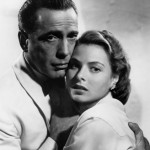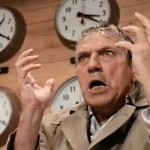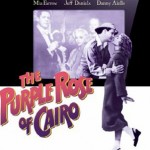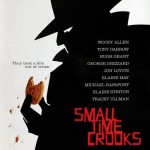Film is relatively new medium. It was silent until 1927, and black and white until 1939. As a result of only recently entering into its adolescence as a genre, it is possible to argue that it has only recently become possible for a filmmaker to be a true master of the the medium.
These masters, who seek to exert creative control over as much of the filmmaking process as possible are called “Auteurs” the French word for “author.” The idea is that some filmmakers have such involvement in the process, including writing, directing, producing, and even perhaps editing or designing sets, that they are the ultimate cause for the final effect of the film.
Autuer theory has its roots in early french film criticism, mostly surrounding the work of an early film pioneer named, Jean Renoir. His film Le Grande Illusion, was the first foreign language film to be nominated for an Academy Award for Best Picture. In the wake of Renoir, other virtuoso filmmakers began to be referred to as Auteurs, including Akira Kurosawa, Ingmar Bergman, and Alfred Hitchcock. As the technology of filmmaking developed, the stories and images of films became more ambitious. Filmmakers like Stanley Kubrick, Francis Ford Coppola, and Woody Allen began to develop the medium.
By the 2000’s there were literally dozens of filmmakers who were considered to have a distinct enough voice, or trade mark look, to be referred to as “Autuer.” Among them were many of the most popular directors of today: Quentin Tarantino, Martin Scorsese, David Lynch, Terry Gilliam, The Coen Brothers, Wes Anderson, Harmony Korine Clint Eastwood, and countless others.
However, while many critics use the term autuer as a form of praise, it is usually reserved for the director. In fact in the French criticism community in which it came to prominence, some critics even argued that the director was without question the single most important member of a production team, surpassing the rest of the crew and even the screenwriter. So the question has remained, can a screenwriter be an autuer? In some cases like P.T. Anderson, Tarantino, and Woody Allen, the screenwriter and the directory are one and the same. It is much more difficult to point to a screenwriter who does not direct that has a sufficiently distinct voice to be recognizable regardless of production, or studio interference. So the question remains, can a screenwriter be an Auteur?
These films were all written by their director as well.
The Godfather – Francis Ford Coppola
The Life Aquatic with Steve Zissou – Wes Anderson
Mulholland Drive – David Lynch
The Dictator – Charlie Chaplain
La Grande Illusion – Jean Renoir
2001: A Space Odyssey – Stanley Kubrick
Annie Hall – Woody Allen
Pulp Fiction – Quentin Tarantino
Punch Drunk Love – Paul Thomas Anderson







You must be logged in to post a comment.